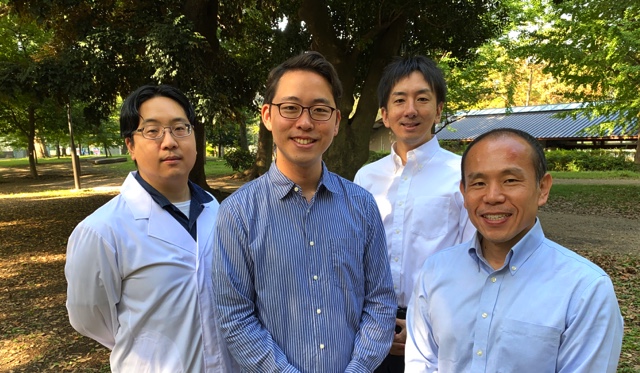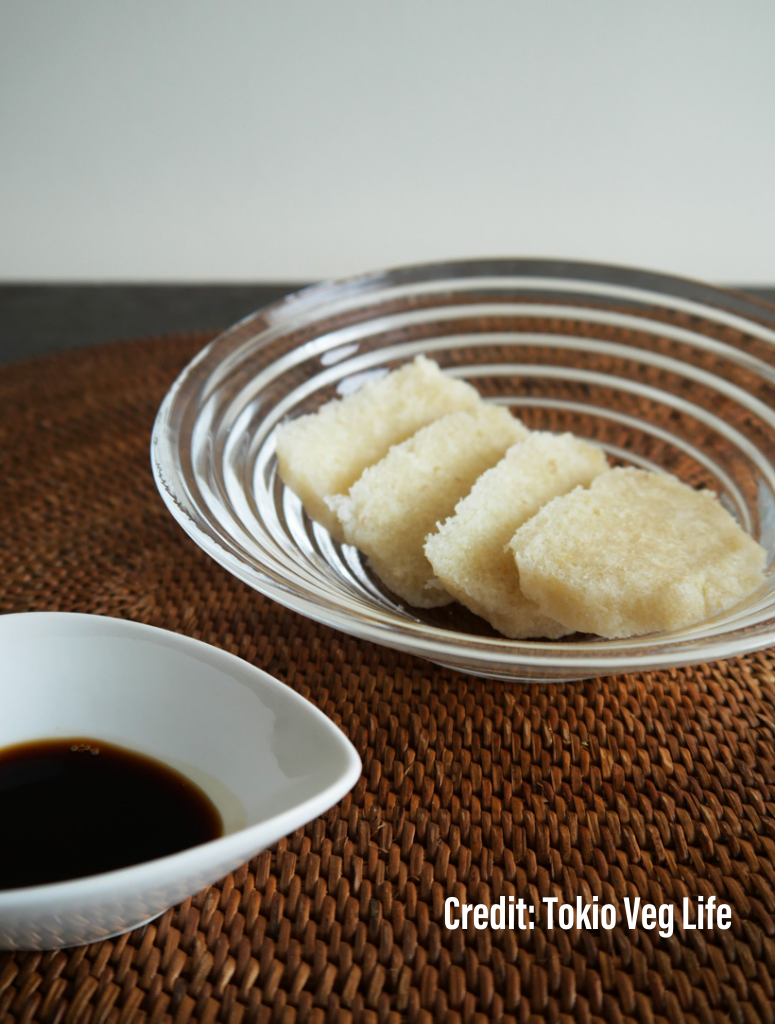What does your startup do and what is your mission?
Hiroto: Our mission is to enrich the global food industry with traditional Japanese food-tech. We are currently creating Japanese-oriented food products such as egg alternatives and plant-based teriyaki meat.
Our products are packed full of umami flavour. One of the five basic human tastes (sweet, sour, salty, bitter, and umami), umami provides an intense and meaty savoury flavour. As a result, it is perfect for developing alternative-protein products that are universally recognisable and enjoyable.
Where did the idea for your company come from?
Shinya: Our starting point was to make Japanese food more diversified and sustainable. When Hiroto, one of the founders and the CEO of Plant-based Japan, worked as a tour guide during his school days, he witnessed many people bringing food from their home countries, since there were so few vegan options in Japan. We want to change that.
The world is moving towards a more sustainable path. However, Japan is very much behind when it comes to the sustainability of food choices. Despite having the largest number of Michelin-starred restaurants in the world, there are not enough options for vegans or people with dietary restrictions. In order to change this situation, we provide consulting support for more than 300 restaurants and food manufacturers looking to enter the plant-based sector.
We noticed throughout this process that the solution already exists in Japan. The consumption of meat was considered to be taboo for over 1,200 years in the country. As a result, a strong plant-based food culture was formed that remains to the present day. We believe that Japanese culture has a lot of potential in the plant-based sector. Umami United will spread delicious umami-powered plant-based food with Japanese ingredients around the world, with the aim of helping to innovate the global food industry.

Tell us about your team. Why are you the right people for the project?
Akihiro: Our team was formed by Hiroto, the CEO and Co-founder, who has experience in establishing international brands, both in Japan and overseas. Together with the rest of our team, he is now responsible for the expansion of the Green Monday Group in Japan.
Shinya and I, who are also Co-founders, both have experience in the plant-based sector. We have assisted more than 300 companies – including restaurants and manufacturers – to enter the plant-based sector in Japan. Last but not least, Kunihiro completes our team, he’s a Co-founder and food scientist, who specialises in product development.
What are your favourite parts about building your business?
Shinya: When we founded something new for the first time, it was the moment when we discovered how fun it is to do business. This something new can be many different things, including building exciting partnerships or working with an innovative new technology.
As we are a startup, unexpected things happen almost every day. However, we believe that innovation happens as a result of these uncertainties.
What have been the main challenges you’ve faced?
Hiroto: At the moment, our main challenge is coordinating with original equipment manufacturers. Challenges that we expect to face in the future include financing and the implementation of test sales. We are aiming our first set of test sales at the Asian market, including Japan, Hong Kong, and Taiwan. That’s because our connection with Europe and the US is limited at the moment. We hope that, with the support of ProVeg Incubator, we can build more partnerships in the West.
What makes your company unique?
Akihiro: Our uniqueness comes from a combination of traditional Japanese food-manufacturing technologies, the umami taste of our products, and the fermentation process we use to produce them. We also use classic Japanese ingredients in our products. This appeals to our target market and help to make us unique on the global stage.
One of our first products, an egg powder, is unique due to its realistic egg appearance and aroma. Umami United egg also has umami added in the form of plant-based dashi in order to make it more savoury than existing egg analogues.
As for our Teriyaki Meat, we use traditional Japanese ingredients, such as konjac – a herb from parts of Asia – to give the product a meat-like texture while also making it healthy. The particular ingredient we use is not ordinary konjac, but okara konjac, which is made by mixing konjac with soya pulp. While general konjac has strong elastic properties, okara konjac has significantly reduced elasticity and a more meat-like texture.

Why did you decide to join the ProVeg Incubator?
Hiroto: Umami United aims to become a global brand while remaining true to its Japanese roots. By joining the cohort at ProVeg Incubator, we would like to strengthen partnerships with the global plant-based sector, especially in Europe and the United States. We also realised that there is a lot for us to learn in the sessions offered by the programme. The knowledge and the connections we can establish from this experience will definitely help us to strive for and hopefully reach our goals.
In your opinion, what do you think it takes for a startup to be successful?
Shinya: We believe it’s the team. While products, finance, and timing are of course very important factors, the most fundamental part is the people. We are going to hire new team members soon, as we want to expand our business in the future. We’ll certainly value those who sympathise with our passion and who share the values of Plant-based Japan.
What do you hope to achieve with your company in the next 12 months?
Shinya: Our go-to-market strategy is not yet where we would like it to be, so we would like to improve our strategy through the ProVeg mentoring programme. For the next 12 months we’ll be focusing on success in Asia. After that, we’ll prepare for entering markets in the West from next year (2022) onwards.

